detail profile renato castellani
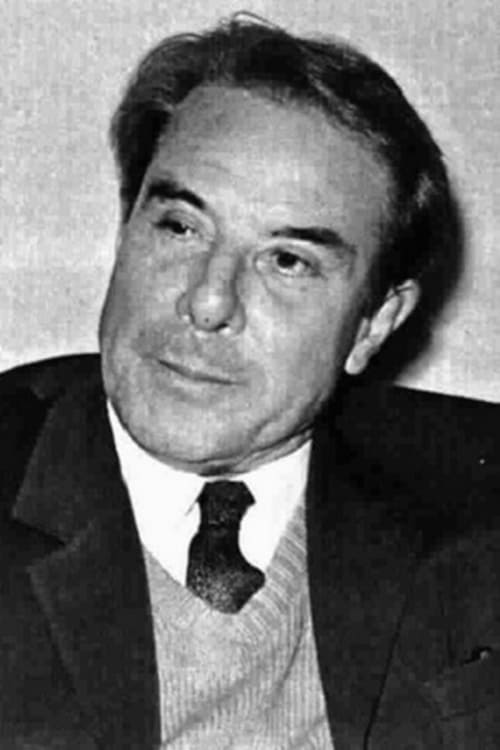
Renato Castellani
Ренато Кастеллани
atau dikenal sebagai
Riwayat Hidup
Renato Castellani (4 September 1913 – 28 December 1985) was an Italian film director and screenwriter.
Son of a representative of Kodak, he was born in Varigotti, at the time a hamlet of Final Pia, which became Finale Ligure (Savona) in 1927, where his mother had returned from Argentina to give birth to his son.
He spent his childhood in Argentina, in the city of Rosario.
After 12 years, he returned to Liguria and resumed his studies in Genoa.
He moved to Milan, where he graduated from the Polytechnic University in architecture.
In Milan he met Livio Castiglioni and together they aired for GUF (Fascist University Group) L'ora radiofonica and La fontana malata by Aldo Palazzeschi, experimenting with new techniques for sound editing on radio.
He began collaborating in 1936 as a military consultant for The Great Appeal, a film by Mario Camerini.
He worked as a film critic and worked - as a screenwriter or assistant director - with important names of the Italian cinema of the time, such as Augusto Genina, with whom he signed the script for Castles in the air (1939), by Mario Soldati, of which he was assistant director on the set of Malombra (1942).
He then worked with the director Alessandro Blasetti, signing the screenplays of his movies An Adventure of Salvator Rosa (1939), The Iron Crown (1941), Four Steps in the Clouds (1942) and with the director Camillo Mastrocinque, signing the screenplay of The Cuckoo Clock (1938).
His first work as a director was A Pistol Shot (1942), based on a story by Aleksandr Puskin, in which Alberto Moravia also took part in the screenplay, with Fosco Giachetti and Assia Noris.
This movie, as well as the subsequent Zazà (1942), fit into the caligraphism genre.
With Under the Sun of Rome (1948), It's Forever Springtime (1950), both shot outdoors with non-professional actors, and especially Two Cents Worth of Hope (1952), Castellani gave rise to a new genre, defined as "pink neorealism", considered by critics at the time as the downward trend of neorealism, but destined to a vast audience success.
With Two Cents Worth of Hope, he won the ex aequo Grand Prix at the 1952 Cannes Film Festival.
With Romeo and Juliet (1954), he won the Golden Lion at the 1954 Venice Film Festival.
After some other significant films such as Dreams in a Drawer (1957) and The Brigand (1961), Castellani devoted himself mainly to biopics in episodes shot for television, widely followed, such as The Life of Leonardo da Vinci (1971) and The Life of Verdi (1982).
Info Pribadi
Peran Yang Di Mainkan Renato Castellani
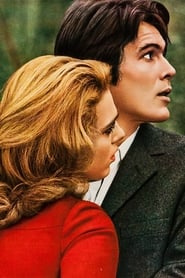 A young American agent living in...
A young American agent living in...A Brief Season 1969
A young American agent living in Rome meets with a beautiful Swedish translator.
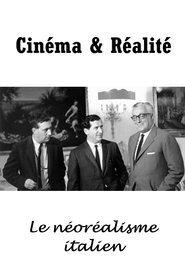 In this documentary giants of italian...
In this documentary giants of italian...Cinéma et Réalité 1967
In this documentary, giants of italian cinema such as Rossellini, De Sica, Fellini and Zavattini talk about the importance of cinema after WW2, and about huge moments of social rebellion. This movie gives the floor to the creators of italian neorealism.
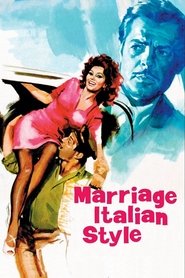 During the bombing of Naples in...
During the bombing of Naples in...Marriage Italian Style 1964
During the bombing of Naples in World War II, a cynical businessman helps a naive prostitute, who spends the next two decades desperate to have him reciprocate her feelings.
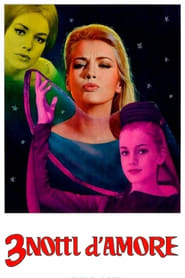 Omnibus film with individual segments directed...
Omnibus film with individual segments directed...Three Nights of Love 1964
Omnibus film with individual segments directed by Renato Castellani, Luigi Comencini and Franco Rossi; all of them starring the radiant Catherine Spaak as "out of place" women longing for love, in a Sicillian village, a monastery, and a modern Italian urban setting, respectively.
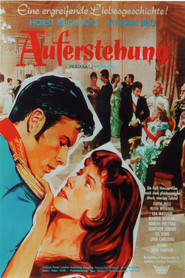 Young Prince Nechljudov is summoned as...
Young Prince Nechljudov is summoned as...Resurrection 1958
Young Prince Nechljudov is summoned as a judge in a murder trial. A rich merchant was found dead in the room of the inn where he was staying and the prostitute Maslova was accused of the crime. Nechljudov recognizes in the woman the maid of the aunts he had seduced and abandoned years before and tries to convince the authorities of her of his innocence but to no avail. Convinced that he is responsible for her moral fall, he follows her to Siberia where she must serve her sentence.
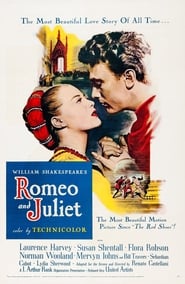 In Shakespeares classic play the Montagues...
In Shakespeares classic play the Montagues...Romeo and Juliet 1954
In Shakespeare's classic play, the Montagues and Capulets, two families of Renaissance Italy, have hated each other for years, but the son of one family and the daughter of the other fall desperately in love and secretly marry.
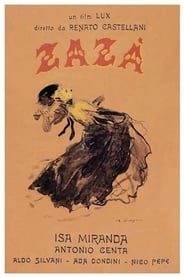 A glamorous female singer Zaz Isa...
A glamorous female singer Zaz Isa...Zazà 1944
A glamorous female singer Zazà (Isa Miranda) has an affair with a passerby engineer Dufresne (Antonio Centa). But when Zazà impatiently comes to him in Paris she finds out that he is married and even has a daughter. He wants to escape from his relatives with Zazà, but, disillusioned and exhausted, she rejects his proposition and insists on his coming back to his family.
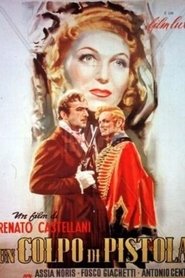 Count Anikoff a Russian officer challenges...
Count Anikoff a Russian officer challenges...A Pistol Shot 1942
Count Anikoff, a Russian officer, challenges his best friend, Sergei, to a duel when he finds him courting the young woman he, too, is in love with. Sergei can't bring himself to kill his friend. He fires only after taking the bullet out of his pistol. Now, it is the Count's turn to fire...
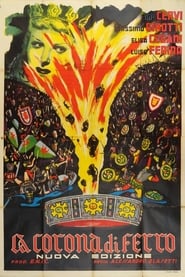 In the kingdom of Kindaor traitor...
In the kingdom of Kindaor traitor...The Iron Crown 1941
In the kingdom of Kindaor, traitor Sedesmondo kills his brother, the King of Kindaor, and becomes the tyrant of kingdom. He abandons the prince Arminio to beasts in the woods, but lions don't kill him and breed him as one of them.
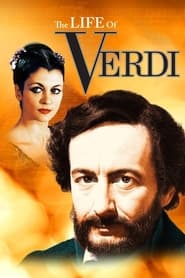 This 1982 biographical television miniseries as seen...
This 1982 biographical television miniseries as seen...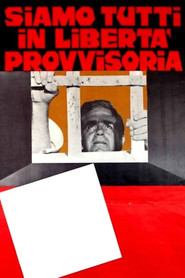 A judge opens an inquiry into...
A judge opens an inquiry into...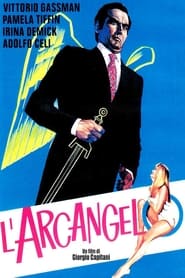 Furio Bertuccia a corruptible lawyer who...
Furio Bertuccia a corruptible lawyer who...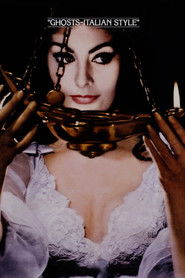 Pasquale and Maria husband and wife...
Pasquale and Maria husband and wife...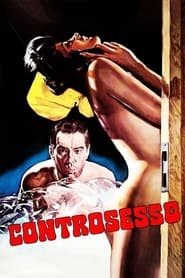 A vivid assortment consisted of three...
A vivid assortment consisted of three...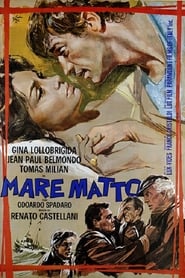 A pretty woman approaching middle age...
A pretty woman approaching middle age...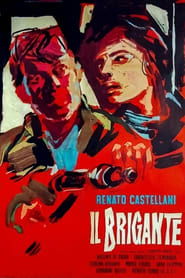 Inspired by a reallife event that...
Inspired by a reallife event that...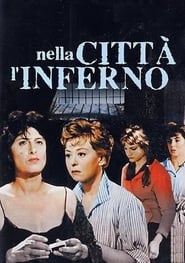 A young girl comes to prison...
A young girl comes to prison... A lovely incisive portrait of adolescents...
A lovely incisive portrait of adolescents...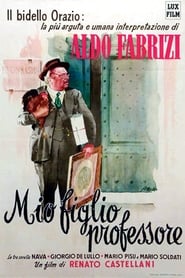 During Fascism and after WWII a...
During Fascism and after WWII a...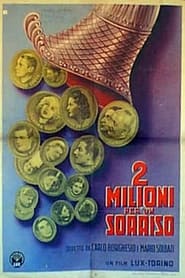 An Italian industrialist who has made...
An Italian industrialist who has made...